Mao Zedong
出生 : 1893-12-26, Shaoshan village, Hunan Province, China
死亡 : 1976-09-09
略歴
Mao Zedong or Mao Tse-tung (also known as Chairman Mao) was a Chinese communist revolutionary and founding father of the People's Republic of China. His Marxist–Leninist theories, military strategies, and political policies are collectively known as Maoism or Marxism-Leninism-Maoism. A controversial figure, Mao is regarded as one of the most important individuals in modern world history, and is also known as a theorist, military strategist, poet and visionary.
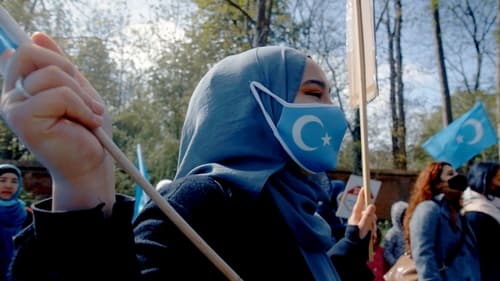
Self - Politician (archive footage)
A relentless chronicle of the tragedy of the Uighurs, an ethnic minority of some eleven million people who live in the Xinjiang region of northwest China, speak a Turkic language and practice the Muslim religion. The Uighurs suffer brutal cultural and political oppression by Xin Jinping's tyrannical government: torture, disappearances, forced labor, re-education of children and adults, mass sterilizations, extensive surveillance and destruction of historical heritage.

Self (archive footage)
One Country, Two Systems? No Way! say the youth of Taiwan. But China under President Xi Jinping wants more than ever to bring the island of Taiwan back into the fold, just like Hong Kong. Can the burgeoning democracy on China’s doorstep, driven by digital technology, resist the Middle Kingdom’s advances? To China Taiwan is a breakaway province that must return to the fold. To its 24 million inhabitants it is a sovereign state with its own constitution and democratically elected leaders. Now that Hong Kong has been brought into line, Taiwan remains determined to stand up as a vibrant, young democracy. But it won't be easy. Since the Sunflower Movement in 2014 when the young came out to prevent an economic agreement with China, citizen groups have been fighting for the transparency of institutions.

Self (archive footage)
A contemporary history of Korea(s) from a unique point of view that embraces the inner history of both South and North Korea in a single narrative.
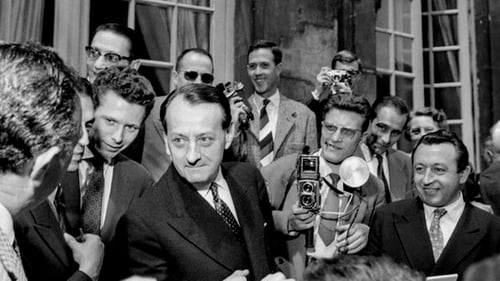
Self - Politician (archive footage)
Writer, journalist, explorer, filmmaker, communist militant, freedom fighter. Truths and lies. A plot twist. Politician. General De Gaulle's shadow. Overwhelmed by the weight of power. The numerous exploits of André Malraux (1901-1976).

Himself - Politician (archive footage)
A portrait of Chinese writer Liu Xiaobo (1955-2017), a witness of the Tiananmen Square massacre (1989), a dissident, a woodpecker who tirelessly pecked the putrid brain of the Communist regime for decades, demanding democracy loudly and fearlessly. Silenced, arrested, convicted, imprisoned, dead. Nobel Peace Prize winner in 2010, alive forever. These are his last words.

Self (archive footage)
Shedding new light on a geopolitical hot spot, the film — written and produced by John Maggio and narrated by Korean-American actor John Cho — confronts the myth of the “Forgotten War,” documenting the post-1953 conflict and global consequences.
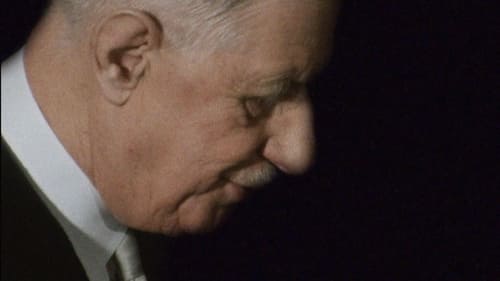
Self (archive footage)
Charles de Gaulle, the first president (1958-1969) of the Vth Republic, France’s current system of government, left his mark on the country . He was statesman of action and has been compared to a monarch. This film depicts the general’s personality through the great events of his presidential term, at a time when the world was undergoing considerable changes.
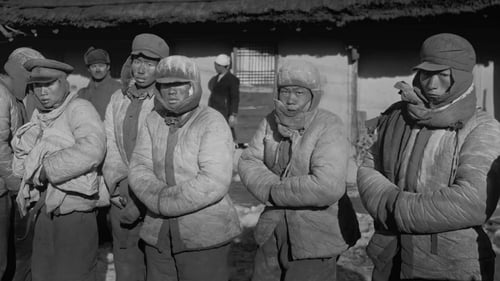
Himself (archive footage)
An amazingly harrowing story of the 17 day engagement of bloody combat and heroic survival in subartic temperatures. UN forces largely outnumbered and surrounded, due to a surprise attack led by 120,000 Chinese troops.

Himself (archive footage)
Directed by Vanessa Hope

Self (archive footage)
The real reasons and orchestrators behind Hitler, to an incredible theory of the JFK assassination, all the way to 9/11 and the current age of the terrorist. Taken from an historical perspective starting around World War 1 leading to present day.
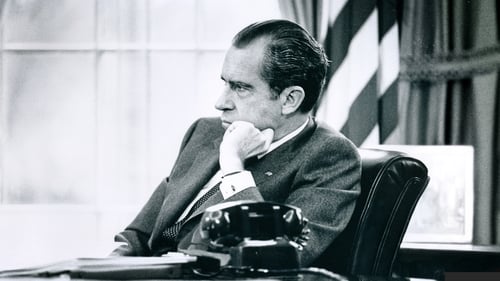
Self (archive footage)
From 1971 to 1973, Richard Nixon secretly recorded his private conversations in the White House. This film chronicles the content of those tapes, which include Nixon's conversations on the war in Vietnam, the Pentagon Papers leak, his Supreme Court appointments, and more--while also exposing shocking statements he made about women, people of color, Jews, and the media.

Self
Never before seen Super 8 home movies filmed by Richard Nixon's closest aides - and convicted Watergate conspirators - offer a surprising and intimate new look into his Presidency.

himself
The extraordinary destiny of two people. After the Second World War, Lois is an actress in Broadway theatre, television and Hollywood films. Her husband, Edgar Snow, is world famous. A pioneer fascinated by China, he is the first journalist to film and interview Mao Tse-tung. Suspected by the American authorities of Communist sympathies, Ed and Lois are blacklisted. Together with their two small children, they go to Switzerland, mid-way between China and America, where they find a new home. A story of revolution, utopia, disillusionment, and hope.

Self (archive footage)

Himself
French documentary from 2013. Mao Zedong and his fourth wife Jiang Qing were married for 37 years, from 1939 until Mao's death in 1976. After his death, she was tried and imprisoned where, at the age of 77, she committed suicide. All the official portraits of her were removed after her death and she became a scapegoat of the things for which Mao was ultimately responsible.
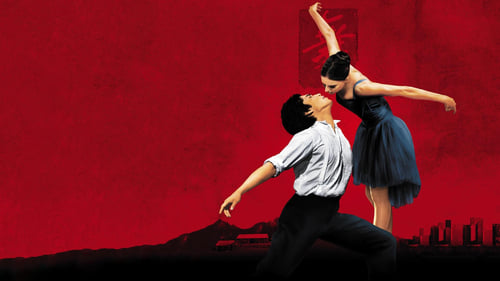
Himself (archive footage) (uncredited)
At the age of 11, Li was plucked from a poor Chinese village by Madame Mao's cultural delegates and taken to Beijing to study ballet. In 1979, during a cultural exchange to Texas, he fell in love with an American woman. Two years later, he managed to defect and went on to perform as a principal dancer for the Houston Ballet and as a principal artist with the Australian Ballet.

Self (archive footage)
Fifty years ago, at the height of the Cold War, the USSR launched Sputnik, the first satellite to orbit the earth, bringing America to its knees in awe - then fear. Initially thrilling as a marvel of science, Sputnik was soon viewed by America a weapon of mass destruction.

Himself
This series presents the definitive history of the Cultural Revolution, its background, and aftermath, blending an incredible array of documentary footage with discussion by Chinese contemporaries, diplomats, and scholars, including Roxanne Witke, the only Westerner to interview Mao’s wife, Jiang Qing.
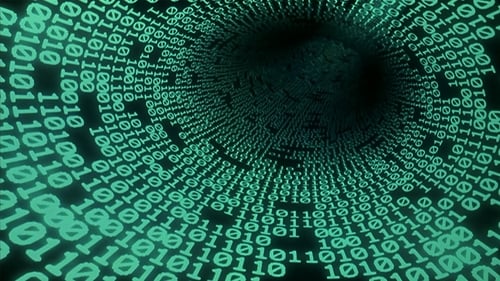
Self (archive footage)
A visual montage portrait of our contemporary world dominated by globalized technology and violence.

The true story of Mei Lanfang, China's greatest opera star; a husband and father whose world-wide fame came from the portrayal of women. His fascinating life was the basis for the feature film Farewell My Concubine.

Self (archive footage)
Human Remains is a haunting documentary which illustrates the banality of evil by creating intimate portraits of five of the 20th century's most reviled dictators. The film unveils the personal lives of Adolf Hitler, Benito Mussolini, Joseph Stalin, Francisco Franco and Mao Tse Tung. We learn the private and mundane details of their everyday lives -- their favorite foods, films, habits and sexual preferences. There is no mention of their public lives or of their place in history. The intentional omission of the horrors for which these men were responsible hovers over the film.
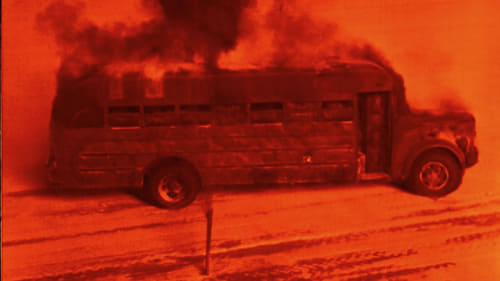
Self (archive footage)
"Trinity and Beyond" is an unsettling yet visually fascinating documentary presenting the history of nuclear weapons development and testing between 1945-1963. Narrated by William Shatner and featuring an original score performed by the Moscow Symphony Orchestra, this award-winning documentary reveals previously unreleased and classified government footage from several countries.
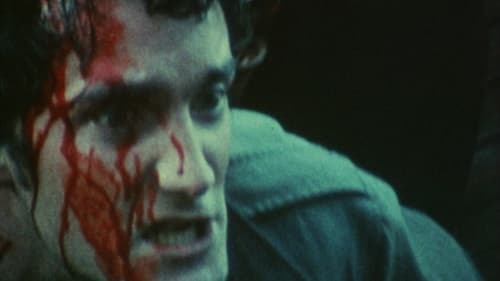
Self (archive footage) (uncredited)
French essay film focusing on global political turmoil in the 1960s and '70s, particularly the rise of the New Left in France and the development of socialist movements in Latin America.

Himself
A film-détournement biography of Mao Tse-tung in which the life of the recently deceased Great Helmsman is told in his own words, using quotes culled from various Red Guard publications. The rise to power of the film's namesake appears as the inevitable outcome of a dialectical logical. Or so the voice-over might lead one to believe. If the usual practice of détourned films is for the soundtrack to undermine the image, here the reverse occasionally takes place. The images critique Mao's words. They show that which, even in the official visual record of the times, the narrative elides. The film is dedicated to Li Yhi Zhe, the nominal author of a famous Democracy Wall critique of the Maoist state.
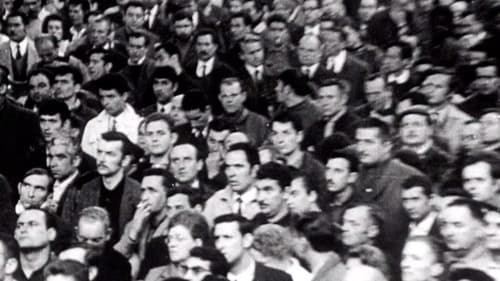
Self (archive footage)
Guy Debord's analysis of a consumer society.

March 9th, 1953. A gray, sad day. Clouds float low over the Kremlin towers. A city that unrecognizably grew, prettier and matured - this Moscow froze in solemn grief. The country escorts its father and leader, Joseph Stalin.

Himself
In 1936 and 1937 Harry Dunham shot "several hundred feet of film," being the first cameraman to penetrate into the Shensi region and obtain footage of the Communist forces in China. He smuggled his film out and placed it in the hands of Frontier Films. Leyda, Lerner, Meyers and Maddow (they had to use pseudonyms) spent four months preparing the film for publication. In that time, the Chinese situation altered to such an extent that Frontier had to change the scenario several times in order to keep up with events...the producers had to make a happy change in the theme of China Strikes Back. It was no longer a film showing the Chinese people moving toward unity. It became a pictorial history revealing the how and why behind a realized unity. (IMDb)

















